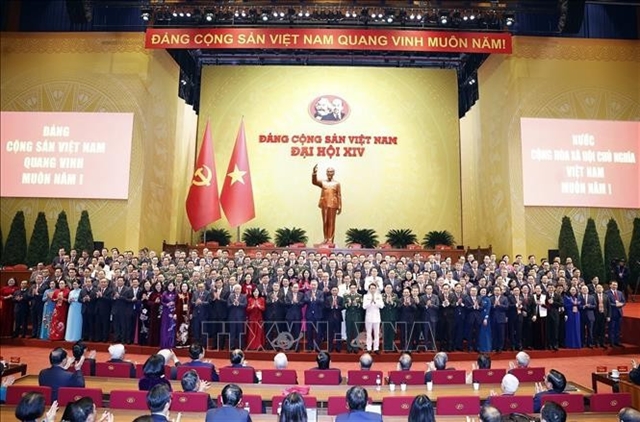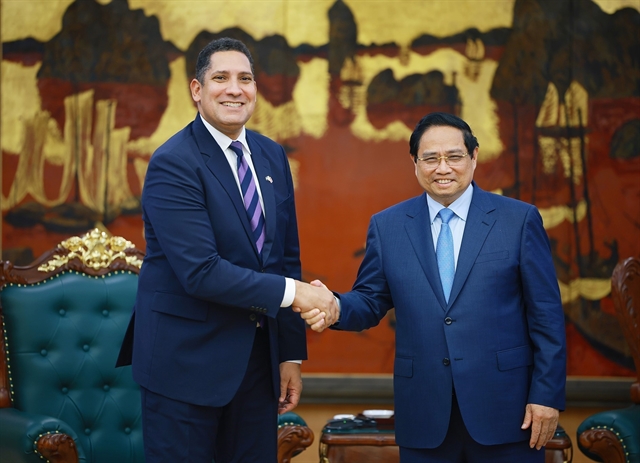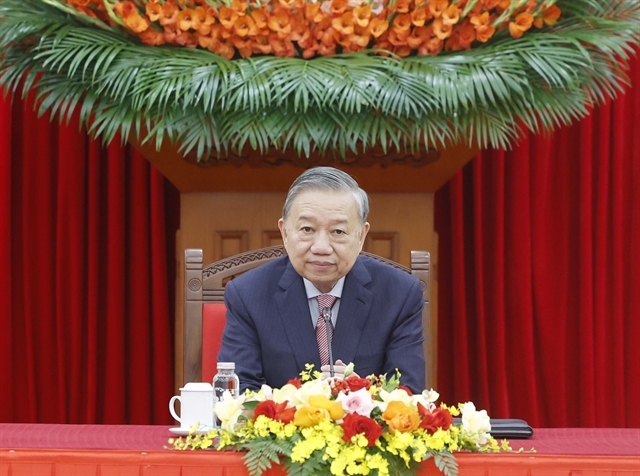 Brandinfo
Brandinfo

The aviation industry is key to economic growth and has limitless potential, as shown by its track record before the COVID-19 pandemic. Vietnam – one of the economies that rely heavily on services as well as exports – needs to prepare its aviation industry to bounce back immediately as globalisation resumes after the pandemic.
At the expert forum “Future careers in Aviation in Vietnam” hosted by RMIT University today, Vietnamese and Australian aviation experts and educators convened. They determined that it is time Vietnam focused on training the necessary talent to power this industry with the help of credible education partners and under the guidance of suitable policies.
The aviation industry is essential to the growth potential of all economies, especially for Vietnam as a developing economy. In the age of globalisation, the aviation industry essentially facilitates the mobility of not only people but also imports and exports, as well as foreign investments, which are key for economic development.
And as the economy grows, the aviation industry becomes indispensable. Indeed, in Vietnam, this core industry has witnessed “massive growth prior to COVID-19 as a result of increasing tourism and stronger economic development,” according to Mr Duong Tri Thanh, former CEO of Vietnam Airlines.
Industry leaders also emphasised an increasing demand for airport development and management staffing in the near future. Major plans for an overhaul of infrastructure are still underway and classified as being of national importance. A prominent project is the establishment of Long Thanh International Airport near Ho Chi Minh City, scheduled to be completed in 2025. Vietnam Airlines Executive Vice President, Nguyen Chien Thang, said that the huge investment in aviation infrastructure and the potential growth of maintenance, repair, and overhaul (MRO) services will drive a strong demand for related jobs.
Because of its unique nature, the aviation industry has suffered the most from the halt to globalisation due to travel restrictions caused by the COVID-19 pandemic. Yet, it is forecasted to be the first and the fastest to revive after the crisis because of its essential role in economies worldwide. Therefore, once the pandemic is over, the aviation industry needs to be well-prepared, experts said.
Currently, the Vietnamese aviation field relies heavily on “imported” talent both for professional and management positions. This is costly and wasteful for a country with a substantial working population like Vietnam.
Should this say "NO previous experience or knowledge?"
Ms Ho Ngoc Yen Phuong, Vice President of Vietjet commented: “For many decades prior to 2011, when Vietjet was established as the first private airline in Vietnam, aviation was a state-managed industry. Its human resources were limited, with most of them having had previous experience or knowledge in the industry before being recruited.The establishment of Vietjet and more open policies have created strong development in the industry and a burst in talent demand.”
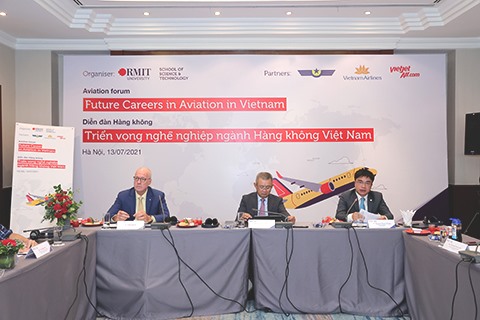
|
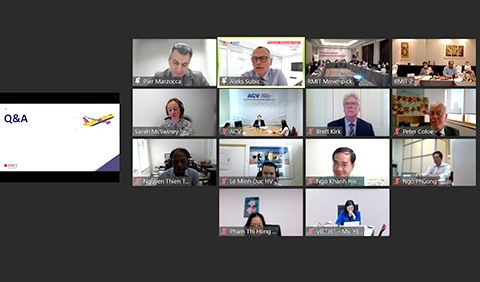
|
RMIT’s aviation industry forum brought together representatives from the Vietnamese and Australian governments, aviation authorities, airlines, aviation training institutions, and other business partners.
“The aviation labour market has become bigger but not enough to realise its potential in terms of both inputs and outputs, especially when Vietnamese aviation is still growing as fast as it is today. If pilots, cabin crews, aviation engineers and managers can get professional training in universities or aviation academies, that will not only create more job opportunities for young people but also support the development of the industry,” Ms Phuong said.
Recognising these systematic problems, Professor Pier Marzocca, Associate Dean of Aerospace Engineering and Aviation, STEM College, RMIT University stated: “It is essential for the sustainable recovery of aviation that we have the right people to support the management and operations of the entire aviation ecosystem. If Vietnam becomes successful in training its talent to reach international standards, in the near future, the country can aim to supply high-skilled labour in this field first regionally, then globally.”
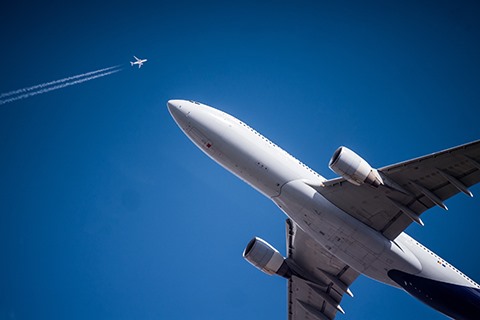
|
This October, RMIT University is welcoming its first intake for the Bachelor of Applied Science (Aviation) program in Vietnam.
RMIT Vietnam has taken the lead on addressing this dire need for quality talent by providing an international-standard bachelor’s program in aviation. Professor Aleks Subic, RMIT Deputy Vice Chancellor (STEM) and Vice President for Digital Innovation is confident that, “with our 80 years of academic experience and worldwide reputation in aerospace and aviation education and research, RMIT University is ready to seize this strategic opportunity to play a leadership role in the aviation industry development in the region.”
“This is an important year for RMIT with the launch of the RMIT Space Industry Hub and as we operationalise the largest university-owned airplane fleet for pilot training in Australia,” said Professor Subic.
The establishment of the Bachelor of Applied Science (Aviation) program in Vietnam provided an opportunity to organise the Aviation Industry Forum for Vietnamese and Australian aviation experts and educators to network, further understand the needs of the industry, and push for necessary and immediate policy guidance to further grow the sector. The forum is an initial point for the long-lasting Vietnam-Australia partnership in aviation education.

